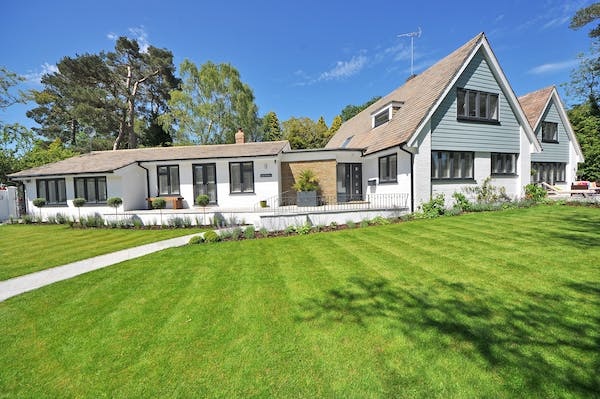Unlock the dream of perfect residential property development for modern living! Achieve a blend of style, luxury, and comfort today!
Overview of modern living demands
Modern living demands a blend of technological proficiency, time management skills, and adaptability. There is heightened reliance on smart devices, increased necessity for quick solutions, and a persistent need for balancing work and personal life. Consequently, it’s a constant endeavour to adjust and succeed.
Importance of optimal residential property development
Optimal residential property development is essential for maximising land use efficiency, adding value to an area, and improving living standards. Thoughtful planning can lead to sustainable, affordable housing and vibrant, empowered communities. Moreover, perfect residential property development significantly contributes to economic growth and social improvement.
Understanding Modern Living
Features of modern living
Modern living encompasses features such as smart home technology, minimalist design, and ecological responsibility. It prioritises convenience with internet connectivity for routine activities, promotes efficient and space-saving decor, and underscores sustainability through energy-saving practices.
Essential elements that define modern residential property
Modern residential property is primarily defined by elements such as open-space designs, sustainable and eco-friendly materials, smart home technology, energy efficiency, ample natural light, and incorporation of outdoor living spaces. It also prioritizes convenience and minimalistic aesthetics.
The Blueprint of Ideal Residential Property Development
Detailed planning: Requirements & Pre-requisites
Detailed planning involves scrutiny of the project scope, including its requirements and prerequisites. The requirements are the exact tasks necessary to complete the project, while prerequisites include resources, timings, and potential constraints. Anticipating and addressing these elements contributes to project success.
Smart designing: Optimizing space and resources
Smart designing is a crucial aspect of modern architecture, focusing on optimizing space and resources for efficiency and sustainability. It encompasses innovative methods, using advanced technology and eco-friendly materials, to create functional spaces that minimize waste and increase usability.
Incorporating modern architecture and designs
Incorporating modern architecture and designs is pivotal for creating dynamic structures. Modern designs blend aesthetics with functionality, focusing on simplicity, sustainability, and the application of advanced technologies. They reshape landscapes, reflect society’s changes, and foster innovative solutions for various design challenges.
Sustainable Development Practices in Residential Property
Need for eco-friendly housing
Eco-friendly housing is becoming increasingly crucial in the wake of rapid environmental degradation. Sustainable homes minimize energy consumption, reduce waste, and mitigate adverse environmental impacts. They provide a healthy living space, creating a sustainable future for generations to come.
Green building practices in property development
Green building practices in property development involve using environmentally friendly materials and strategies. These practices aim to minimize environmental impact through energy efficiency, water conservation, and improved air quality. Technologies such as solar panels and rainwater harvesting are often used.
Benefits of sustainable home design
Sustainable home design benefits include reduced energy costs, improved indoor air quality, and lower environmental impact. It promotes efficient resource use, durability and waste reduction, contributing to better health and wellbeing, while also preserving the planet.
Technology in Modern Residential Property
Role of technology in today’s housing market
Technology is transforming today’s housing market through virtual tours, mobile apps, and online transactions. It simplifies the home buying and selling process by offering instant access to property listings and real estate data. Ultimately, technology enhances efficiency and transparency in the housing market.
Smart homes & automation in modern living
Smart homes and automation have revolutionized modern living. These technologies offer convenience, energy efficiency, and security, automating tasks such as climate control and home security. They enhance comfort and ease of daily living, making them essential components of contemporary households.
Future of residential property with technological advancements
Technological advancements are transforming the future of residential property. Smart homes featuring AI systems, energy-efficient appliances, and advanced security are becoming the norm. Technology also facilitates remote property transactions, enhancing convenience and efficiency for buyers and sellers.
Financing and Laws in Residential Property Development
Importance of financial planning in property development
Financial planning in property development is vital. It determines the project’s viability, ensures adequate funding, mitigates risks, and avoids overspending. Without proper planning, developers risk insolvency and non-completion, leading to substantial financial loss and reputational damage.
Legal considerations in residential property development
Legal considerations in residential property development include zoning laws, building regulations, environmental legislation, and legal constraints on land use. Developers must also consider contractual obligations, and potential disputes, and ensure compliance with local, state, and federal laws. Failure to comply can result in legal penalties and project delays.
Case Studies of Successful Residential Property Developments
Analysis of accomplished projects
In analyzing accomplished projects, a thorough evaluation of project goals, execution strategies, and outcomes is conducted. This analysis is crucial to identify strengths, weaknesses, lessons learned, and opportunities for future improvements. It fosters organizational learning and continual development.
Lessons learned and success factors
Drawing lessons from past experiences is a key factor in attaining success. It nurtures growth, and continuous improvement, and establishes a foundation for personal and professional development. Persistence, resilience, and adaptability are fundamental to turning learned lessons into success factors.
Challenges and Solutions in Achieving the Perfect Residential Property Development
Identifying common obstacles
Identifying common obstacles is a crucial step in problem-solving. It involves assessing potential barriers such as lack of resources, ineffective communication, fear of change or poor planning. Recognizing these can lead to more efficient strategic planning and successful outcomes.
Effective strategies and solutions
Effective strategies and solutions require careful planning, analysis, and implementation. They involve setting clear goals, identifying challenges, researching viable solutions, and evaluating their impact. Successful strategies consider contingencies and are adaptable to changing circumstances.
Conclusion
Recap of key factors in creating the perfect residential property for modern living
Creating the perfect residential property for modern living involves key factors: location proximity to amenities and transport, space utilization, smart home features, sustainable design, and security measures. Aesthetic appeal, comfort, and functionality must also blend seamlessly to suit residents’ lifestyles.
The future outlook of property development for modern residences
The future of property development for modern residences holds exciting prospects, largely influenced by innovation and emerging consumer needs. Expected trends include green, sustainable practices, smart home technologies, modular construction, and environment-friendly designs, catering for comfort, efficiency, and adaptability.





